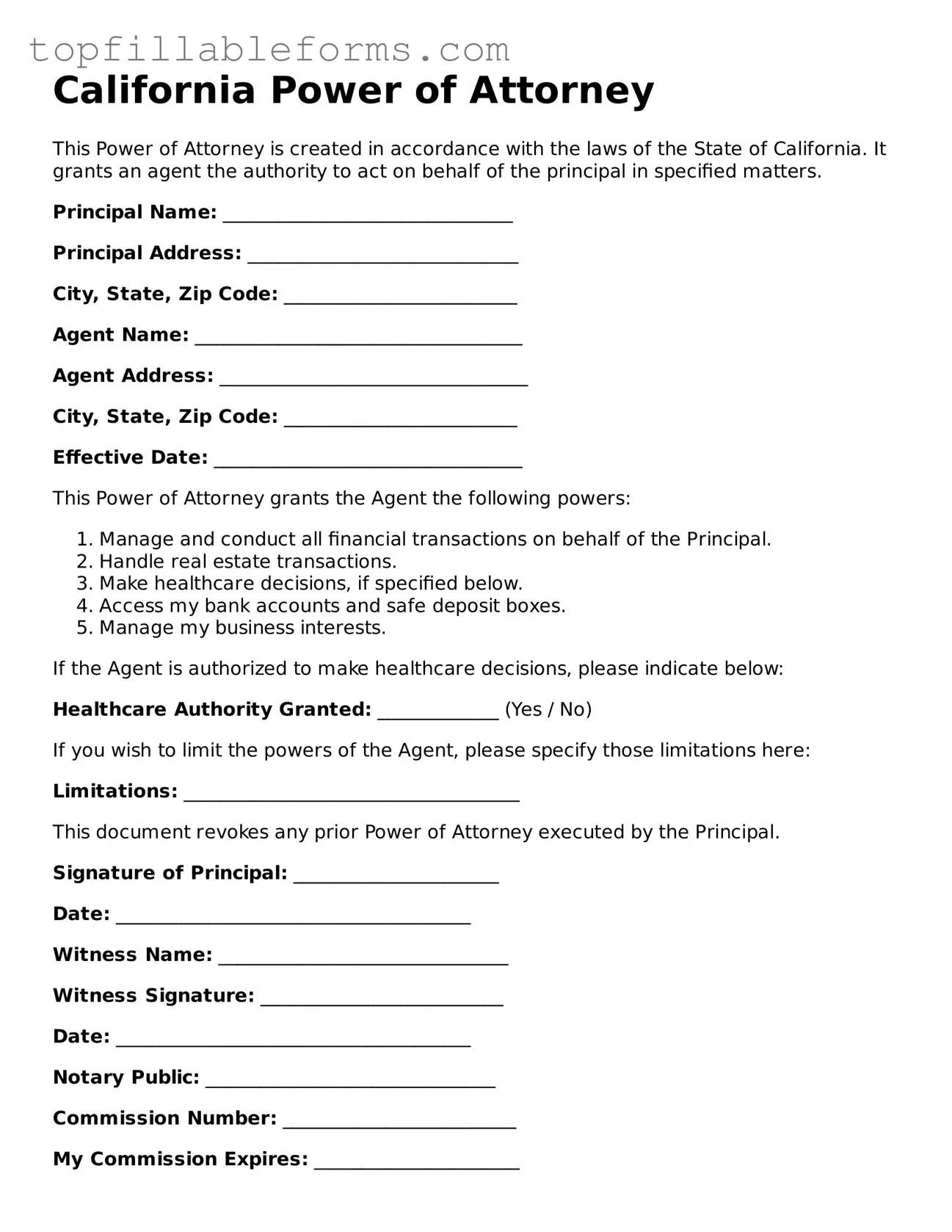Attorney-Verified Power of Attorney Template for California
The California Power of Attorney form is a legal document that allows an individual, known as the principal, to designate another person, referred to as the agent, to make decisions on their behalf. This form can cover a wide range of responsibilities, from managing financial matters to making healthcare decisions. Understanding its implications is essential for ensuring that your wishes are honored when you are unable to communicate them yourself.
Open Power of Attorney Editor Here

Attorney-Verified Power of Attorney Template for California
Open Power of Attorney Editor Here
Finish the form now and be done
Finish your Power of Attorney online by editing, saving, and downloading fast.
Open Power of Attorney Editor Here
or
▼ PDF File
